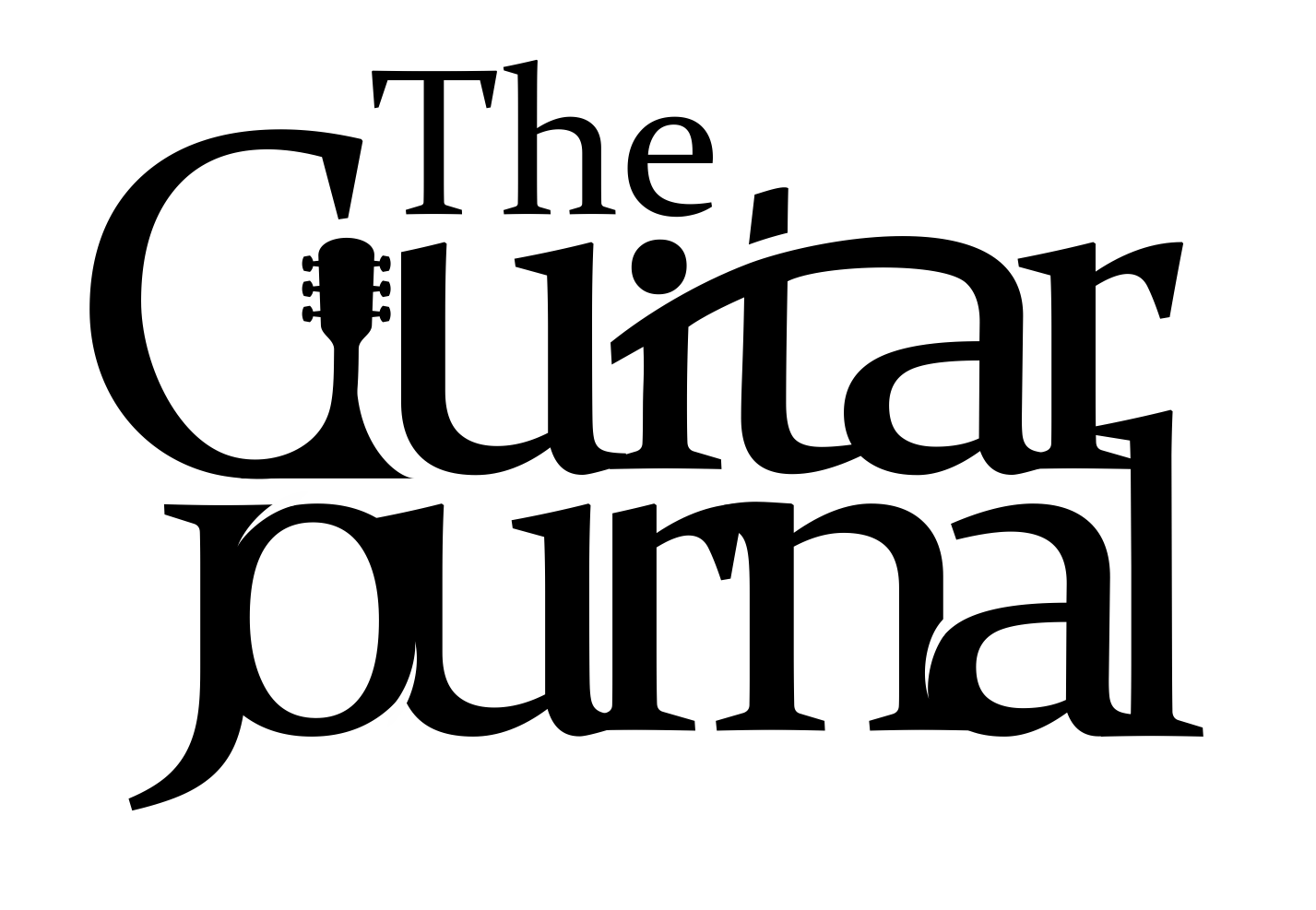Top 25 Best Classical Guitarists of All Time
The challenge of listing the top 25 classical guitarists is that there is such a deep history in classical guitar, how far back do you go? Do you limit it to the current players? But then that doesn't work - I mean, how could you leave Segovia out (as you would have to do)?
Instead, this list blends the great players from across the twentieth century, and few players from before. It is international, and addresses different styles, from Baroque-influenced to Spanish to contemporary.
There are so many other great players out there - please add your favorite to the list below!
Enjoy.

Here We Go... The List.
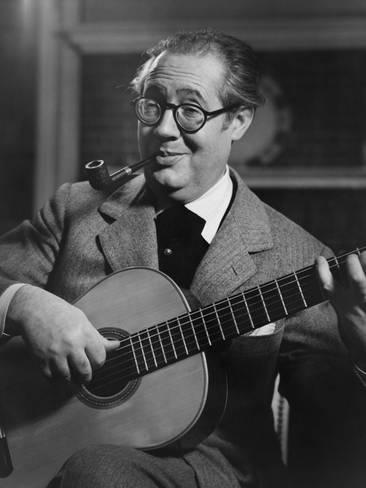
Andrés Segovia (1893-1987)
Andrés Segovia, Spanish musician acclaimed as the foremost guitarist of his time. He was the most important force in reestablishing the guitar as a concert instrument in the 20th century, chiefly through demonstrating its expressive and technical potential. He continued giving concert performances past the age of 90.
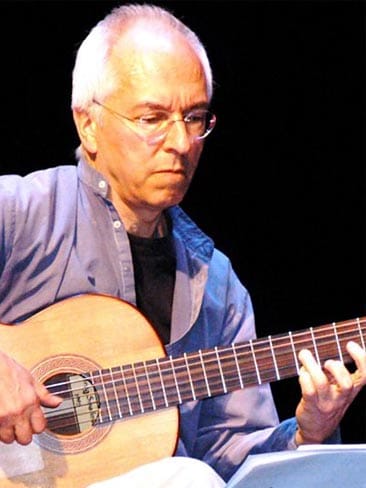
John Williams
John Christopher Williams, OBE (born 24 April 1941) is an Australian virtuosic classical guitarist renowned for his ensemble playing as well as his interpretation and promotion of the modern classical guitar repertoire. In 1973, he shared a Grammy Award in the Best Chamber Music Performance category with fellow guitarist Julian Bream for Julian and John (Works by Lawes, Carulli, Albéniz, Granados). Guitar historian Graham Wade has said: "John is perhaps the most technically accomplished guitarist the world has seen."
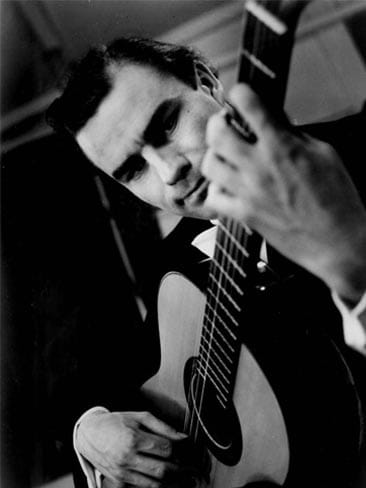
Julian Bream
Proclaimed by many students of classical music as the premier guitar and lute virtuoso of the 20th century, Julian Bream was born in London in 1933.
After studying at the Royal College of Music, he made his public debut in 1950, quickly winning fame for his technique and mastery of a wide range of musical styles. In 1960, he founded the Julian Bream Consort, an ensemble of original instrument virtuosi which enjoyed astounding success in their chosen oeuvre, greatly revitalizing interest in the music of the Elizabethan era. Named an Officer of the Order of the British Empire in 1964, Bream was then named a Commander of the Order of the British Empire two decades later.
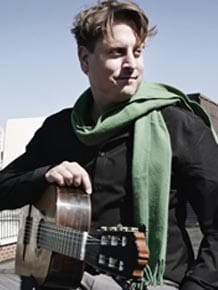
Jason Vieaux
Grammy-winner Jason Vieaux, “among the elite of today's classical guitarists” (Gramophone), is the guitarist that goes beyond the classical. NPR describes Vieaux as, “perhaps the most precise and soulful classical guitarist of his generation.” Among his extensive discography is the 2015 Grammy Award winning album for Best Classical Instrumental Solo, Play, from which the track “Zapateado” was also chosen as one of NPR’s “50 Favorite Songs of 2014 (So Far)”.
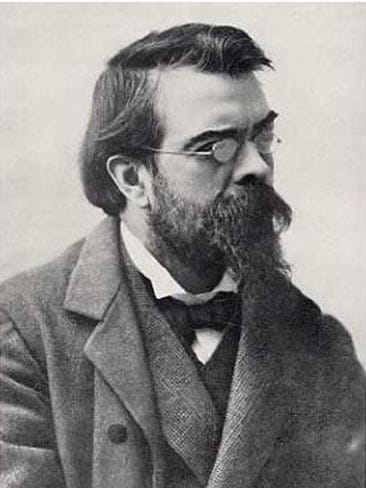
Francisco Tárrega (1852-1909)
Francisco Tárrega was an important Spanish composer whose music and style of guitar playing became strongly influential in the 20th century. He was central to reviving the guitar as a solo instrument in recital and concerts. Among his most popular compositions are Recuerdos de la Alhambra and Danza mora. He wrote nearly 80 original works for the guitar and over 100 transcriptions, mostly of piano pieces by Chopin, Beethoven, and others.
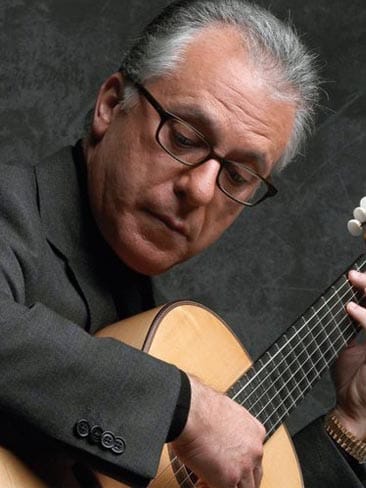
Pepe Romero
Pepe was born in Málaga, Spain, in 1944. In those days, following the devastating Spanish Civil War (1936-39) and during the Second World War, Spain was in desperate economic straits. Basic survival was the primary challenge. Yet, despite this, Celedonio Romero and his remarkable wife, Angelita, instilled in all three of their children a love of music that transcended the profound misery surrounding them.
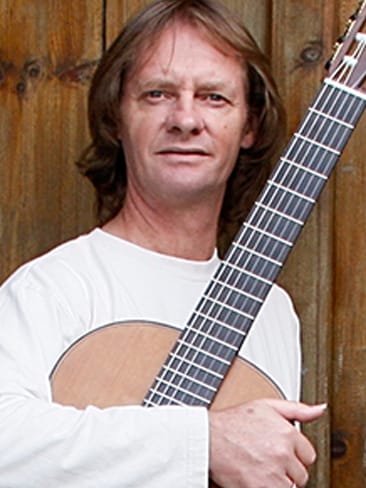
David Russell
The Scottish guitarist, David Russell, was born in Glasgow, and while still very young (age 5), moved with his parents to Menorca, a Spanish island in the Mediterranean. His father, an artist, was an avid amateur guitarist. It became natural for David to pick up the instrument, and his father began to teach him to play it. He cannot remember when he did not play the guitar. Before he could read music, he could play the pieces by ear that he had learned from listening to Andrés Segovia recordings. When he got somewhat older he also learned to play violin and French horn.
Follow the Spotify Playlist, "Top 25 Classical Guitarists - Songs From the Masters":
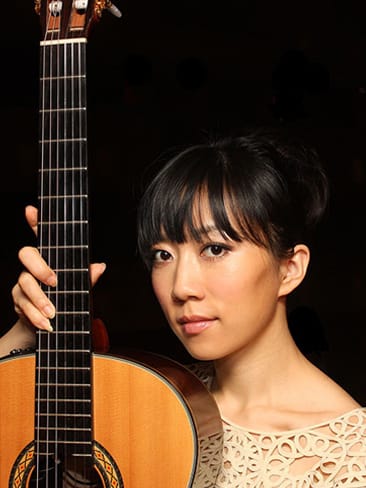
Xuefei Yang
The Chinese guitarist, Xuefei Yang ((Fei)), began playing the guitar when she was 7. Three years later, she started studying under Chen Zhi, the Chairman of the China Classical Guitar Society. She made a public debut at the age of 10, at the First China International Guitar Festival, where she met with an immediate acclaim. At her debut, one of the most respected luthiers, Masaru Kohno, presented her a guitar, Pepe by Aria; it was her first foreign-made guitar. The next achievement that she made was a second prize at the Beijing Senior Guitar competition; at that time, she was only 11. As a schoolgirl, Yang rapidly achieved an international reputation, playing extensively in China, Hong Kong, Macau, Spain, and Australia, and giving concert tours in Taiwan, Japan and Portugal. At twelve, she played in Tokyo for the first time, and was given a special award by the Guitar Alliance of Japan. Masaru Kohno, this time, took Yang to his studio and asked her to take any guitar with her. She played the Kohno guitar, made of cedar and jacaranda, regularly over the next five years. During her Madrid debut at age 14, the composer Joaquín Rodrigo was among the audience; in 1995, after John Williams listened to her performance in Beijing, he was so impressed that he loaned two of his own Greg Smallman guitars to her conservatory, for her and other top students to play.
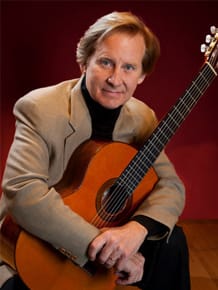
Christopher Parkening
Christopher Parkening is celebrated as one of the world’s preeminent virtuosos of the classical guitar. The Washington Post called him “the leading guitar virtuoso of our day, combining profound musical insight with complete technical mastery of his instrument.” The New York Times described his playing as “so intelligent, sensitive and adept that one can forget everything but the music.Parkening’s performances, recordings, and collaborations, which have included artists such as Kathleen Battle, Renée Fleming, Placido Domingo, Josh Groban, Jubilant Sykes, and composers/conductors John Williams and Elmer Bernstein, have received the highest worldwide acclaim. A frequent soloist with leading orchestras, Parkening has performed at the White House and appeared on 20/20, The Today Show, The Tonight Show, Good Morning America, and The Grammy® Awards.
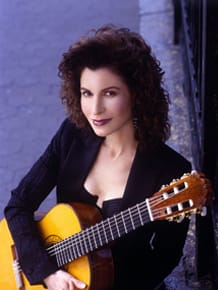
Sharon Isbin
The American guitarist, Sharon Isbin, began her guitar studies at age 9 in Italy. She was a student of Andrés Segovia, Oscar Ghiglia and Alirio Díaz. A former student of Rosalyn Tureck, Isbin collaborated with the noted keyboardist in preparing the first performance editions of the Bach lute suites for guitar (published by G. Schirmer). She received a B.A. cum laude from Yale University and a Master of Music from the Yale School of Music. She was the 1st Prize winner of the Toronto Guitar 1975 competition, a winner of the Madrid Queen Sofia, and the first guitarist ever to win the Munich Competition.

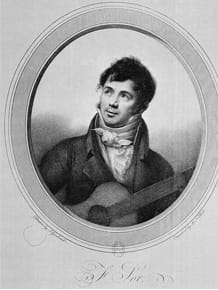
Fernando Sor (1778-1839)
Fernando Sor, original name (Catalan) Josep Ferran Sorts i Muntades, also called (Spanish) José Fernando Macarurio Sors or (English) Joseph Fernando Macari Sors, (baptized February 14, 1778, Barcelona, Spain—died July 10, 1839, Paris, France), Catalan Romantic performer, composer, and teacher of guitar known for being among the first to play the guitar as a classical concert instrument and for writing one of the earliest books of guitar-playing methodology. He was a noted guitar virtuoso.
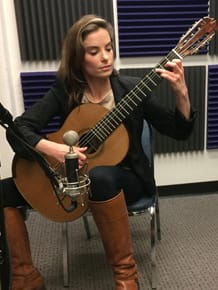
Ana Vidović
The Croatian guitarist, Ana Vidović, started playing guitar at the age of 5, and by 7 had given her first public performance. At the age of 11 she was performing internationally, and at 13 became the youngest student to attend the prestigious National Musical Academy in Zagreb where she studied with Professor Istvan Romer. Ana's reputation in Europe led to an invitation to study with Manuel Barrueco at the Peabody Conservatory where she graduated in 2005. She has won an impressive number of prizes and international competitions including first prizes in the Albert Augustine International Competition in Bath, England, the Fernando Sor competition in Rome, Italy and the Francisco Tarrega competition in Benicasim, Spain. Other top prizes include the Eurovision Competition for Young Artists, Mauro Giuliani competition in Italy, Printemps de la Guitare in Belgium and the Young Concert Artists International Auditions in New York.
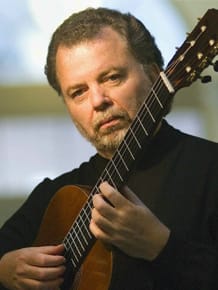
Manuel Barrueco
The legendary Manuel Barrueco is internationally recognized as one of the most important guitarists of our time. His unique artistry has been continually described as that of a superb instrumentalist and a superior and elegant musician, possessing a seductive sound and uncommon lyrical gifts.His career has been dedicated to bringing the guitar to the main musical centers of the world. During three decades of concertizing, he has performed across the United Sates from the New World Symphony in Miami to the Seattle Symphony, and from the Hollywood Bowl with the Los Angeles Philharmonic to New York’s Lincoln Center. He has appeared with such prestigious orchestras as the Philadelphia Orchestra and with the Boston Symphony under the direction of Seiji Ozawa, in the American premiere of ToruTakemitsu’s "To the Edge of Dream." In addition, he appears regularly with the Baltimore Symphony Orchestra and with San Francisco Performances.
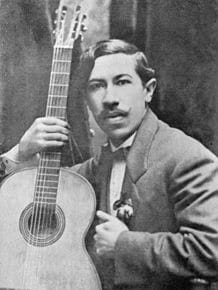
Agustín Barrios (1885-1944)
Agustín Pío Barrios was born in southern Paraguay on 5 May 1885, and died on 7 August 1944, in San Salvador, El Salvador. To many, Barrios was the greatest of all guitarist/composers. In view of this, it is curious that his music lay undiscovered and unappreciated for over three decades after his death. In the mid-1970s comprehensive editions of his music appeared, making it possible for guitarists of a younger generation to study his music, augmenting and complementing more traditional repertoire. The revival began in 1977 with a release by John Williams of an entire recording of music by Barrios, bringing overdue recognition to this forgotten Latin American guitarist. Today Barrios’ music is frequently performed by major concert artists and is appreciated by audiences worldwide.
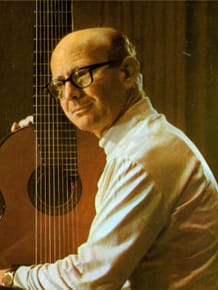
Narciso Yepes (1927-1997)
Narciso Yepes was one of the finest virtuoso classical guitarists of the twentieth century, generally ranked second after Andrés Segovia. Despite a strong interest in music from the Baroque period, his overwhelming preference was for the serious compositions of Spanish composers from the early twentieth century, though he also showed interest in flamenco music. He displayed a special fondness for the works of Joaquín Rodrigo and was instrumental in the rediscovery of many previously neglected Baroque compositions. He also achieved distinction as a composer, especially in the realm of film music.

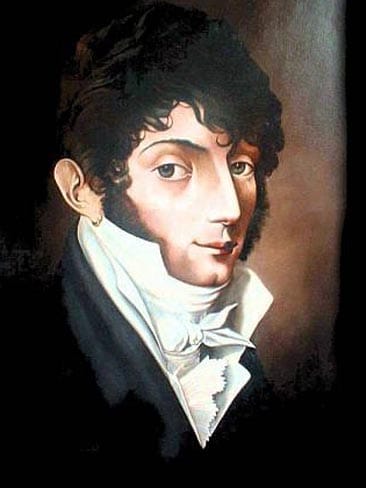
Mauro Giuliani (1781-1829)
The Italian guitar virtuoso Mauro Giuliani settled in Vienna in 1806. There he exercised strong influence over the progress of the instrument, as a teacher, performer and composer. He left Vienna in 1819, spending some four years in Rome before retiring to Naples, where he died in 1829.
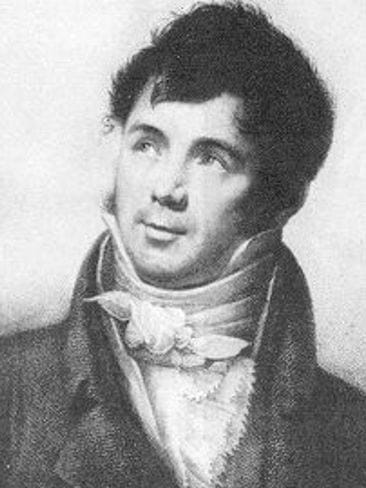
Ferdinando Carulli (1770-1841)
Ferdinando Maria Carulli was one of the most influential composers for classical guitar as well as the author of the first complete classical guitar method. He wrote a variety of works for classical guitar, including concertos and chamber works. He was an extremely prolific writer for guitar, writing over 400 works for the instrument in the space of twelve years.
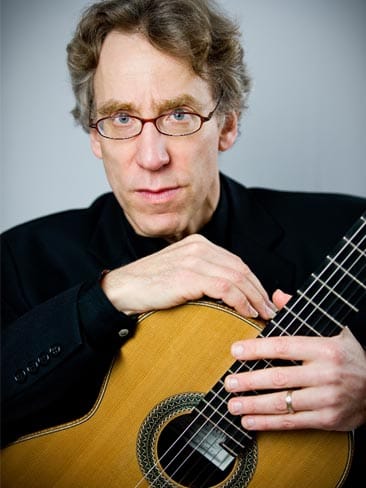
Eliot Fisk
The American guitarist, Eliot Fisk, was the last direct pupil of Andrés Segovia and is the holder of all reproduction rights to A. Segovia's music, given to him by A. Segovia's wife, Emilia. After attending Jamesville-Dewitt High School in Dewitt, New York, Fisk also studied interpretation under harpsichordists Ralph Kirkpatrick and Albert Fuller at Yale University, where he graduated summa cum laude in 1976. After graduation, he was asked to form the Guitar Department at the Yale School of Music. He was the winner of the International Guitar Competition in 1980.
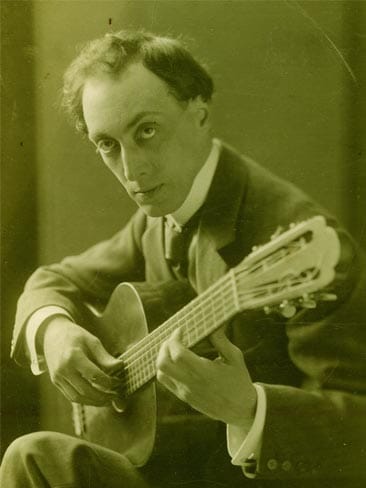
Miguel Llobet (1878-1938)
Llobet was born on October 18, 1878, in Barcelona, Spain. Though he turned to the guitar at the relatively late age of 11, he had studied both piano and violin from his early childhood. His first teacher was Magín Alegre; by 16 Llobet was studying with Francisco Tárrega at the Barcelona Municipal Conservatory of Music.
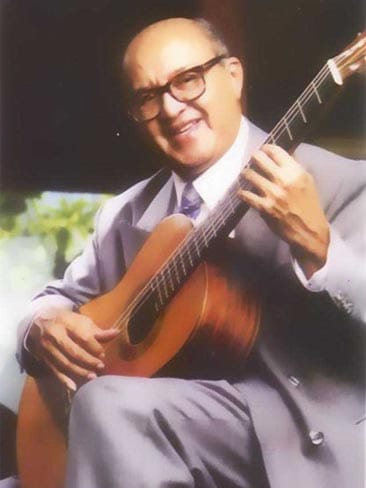
Alirio Díaz (1923-2016)
Alirio Diaz was one of the true masters of the Spanish guitar. A student of Raul Borges, the originator of Venezuela's Spanish guitar tradition, in the late-1940s, Diaz garnered international acclaim for his instrumental wizardry.
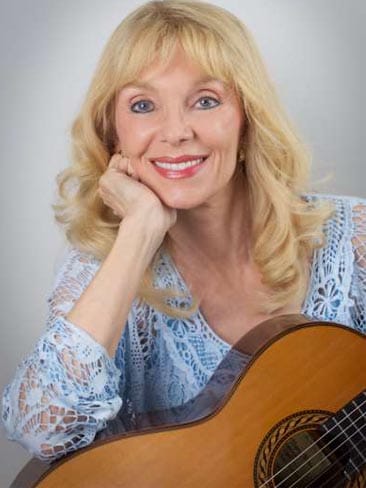
Liona Boyd
Five time Juno award winner, Liona Boyd, ”The First Lady of the Guitar", has enthralled millions with her romantic and unique brand of classical, folk and world music. She has performed solo and orchestral concerts around the world, had her own television specials, and recorded twenty-eight albums, many of which have gone Gold and Platinum. Her total views on YouTube are over six million. A new album of original songs, No Remedy for Love was released in 2017 by Universal Music, along with a new autobiography, also titled No Remedy for Love, from Dundurn Press.
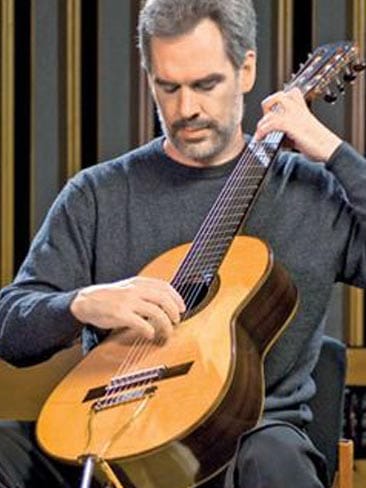
Paul Galbraith
Internationally renowned, Paul Galbraith is one of the finest active guitarists today, as well as a brilliant innovator. With the help of the eight-string “Brahms Guitar”, an instrument he developed together with David Rubio, he has expanded both the limits of the instrument and the quality and breadth of its repertoire. Several highly acclaimed recordings attest to these developments, as well as to his searching artistic temperament and mastery.
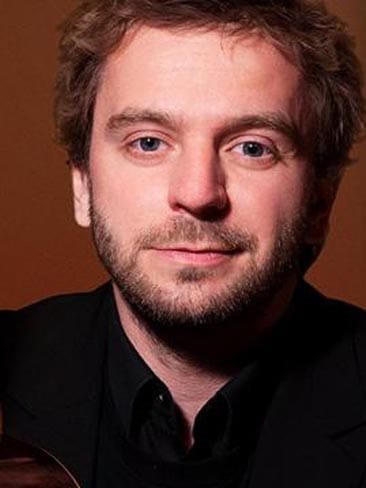
Marcin Dylla
Hailed by Washington Post as “among the most gifted guitarists on the planet” Polish guitarist, Marcin Dylla is a rare phenomenon in the recent history of Classical Guitar. Many music critics, connoisseurs, and music lovers certify that Marcin Dylla is among the world’s elite of classical guitar players. He has earned this position, among others, to the unparalleled number of awards including 19 First Prizes from 1996-2007 at the most prestigious international music competitions around the world. His last triumph was the Gold Medal of the ‘2007 Guitar Foundation of America International Competition’ in Los Angeles known as the most prestigious guitar contest in the world followed by tour of over 50 cities in North America, Mexico and Canada during 2008-09 season, live recital video recording for Mel Bay Publications and CD recording for Naxos that reached the Naxos ‘Top 10 Bestselling Albums’ in September 2008. His live recital DVD “Wawel Royal Castle at Dusk” was nominated for 2010 Fryderyk Award (equal to American Grammy) in the category of Solo Classical Music Album of the Year.
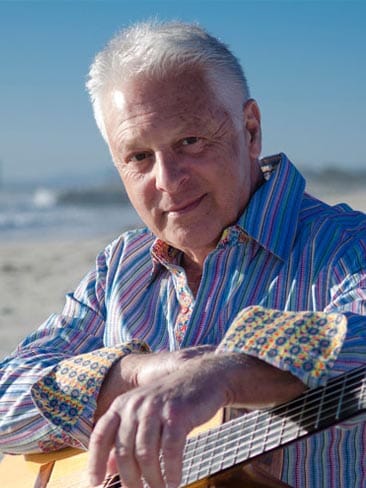
Ángel Romero
Ángel Romero is a Spanish classical guitarist, conductor and former member of the guitar quartet Los Romeros. He is the youngest son of Celedonio Romero, who in 1957 left Spain for the United States with his family.
Romero made his professional debut at the age of six. At the age of sixteen, at his United States debut, he appeared as the Los Angeles Philharmonic's first guitar soloist, giving Joaquín Rodrigo's Concierto de Aranjuez its premiere for the US West Coast. He has studied conducting with Eugene Ormandy, the conductor of the Philadelphia Orchestra.
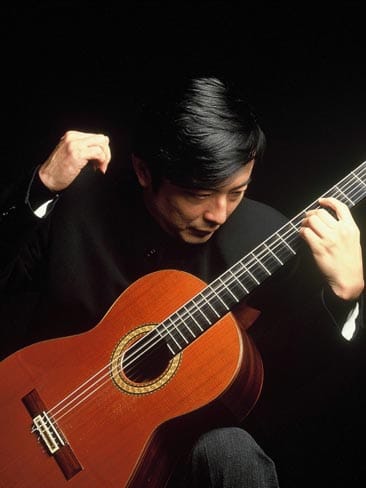
Kazuhito Yamashita
Kazuhito Yamashita is a Japanese classical guitarist. His technique and expression are highly acclaimed. By the age of 32, Yamashita had already released 52 albums, including repertoires for solo guitar, guitar concertos, chamber music and collaborations with other renowned musicians such as James Galway. To date, he has released a total of 83 albums.
Bonus!
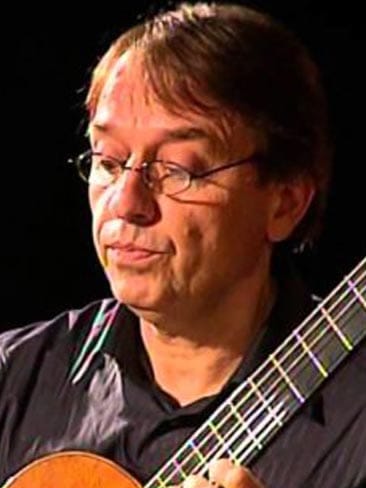
Dušan Bogdanović
A richly gifted composer, improviser and guitarist, Dusan
Bogdanovic has explored musical languages that are reflected in his style today- a unique synthesis of classical, jazz and ethnic music. As a soloist and in collaboration with other artists, Bogdanovic has toured extensively throughout Europe, Asia and the United States. His performing and recording activities include work with chamber groups of diverse stylistic orientations including The Falla Guitar Trio and jazz collaborations with James Newton, Milcho Leviev, Charlie Haden, Miroslav Tadic, Mark Nauseef, Anthony Cox and others. He has over fifty published compositions ranging from guitar and piano solo works to chamber and orchestral ensembles (Berben, GSP, Doberman-Yppan et al.), as well as close to twenty recordings ranging from Bach Trio Sonatas to contemporary works (Intuition, GSP, Doberman-Yppan, M.A. Recordings et al.).
